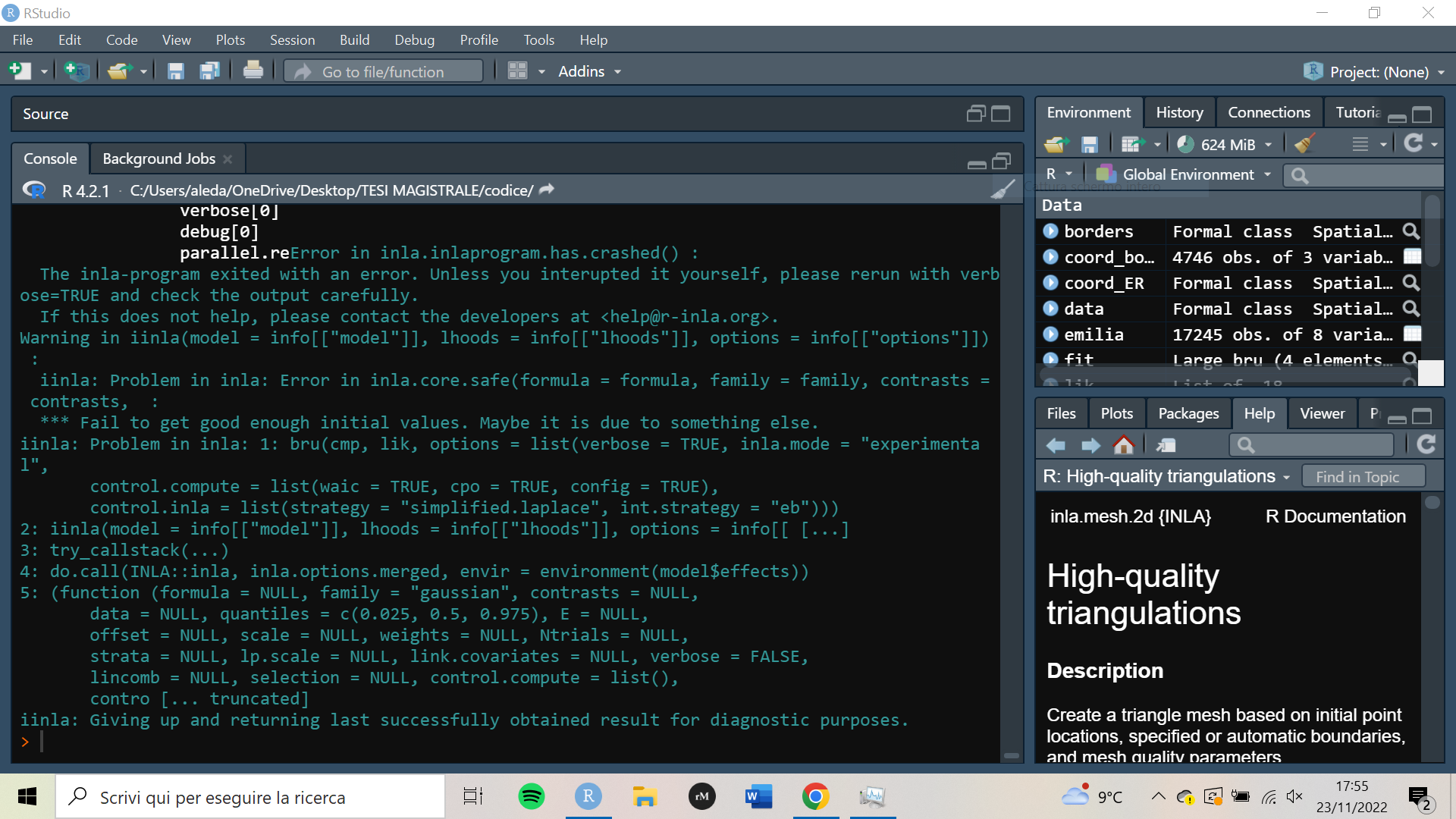Problem with different coordinates
21 views
Skip to first unread message
alessandro dalla bona
Nov 23, 2022, 11:56:56 AM11/23/22
to R-inla discussion group
Hi everyone!

I have a problem which is for me quite incomprehensible.
I am fitting the usual spatio_temporal model for polllution data, based on the SPDE approach, in order to predict the concentration of pollutant over time.
At first I used LAT/LONG coordinates for the data (coordinates of measurment stations and borders of my region of interest) and everything was good. I could process a mesh of 515 nodes during a time of 180 days for 49 stations.
The problem though was that that the range posterior mean (for the spde) was uninterpretable.
So I thought to convert the coordinates in UTM, in order to have a km-unit range.
It works well with coarse meshes and for a small period of time, but when I run more complex model It does not work anymore.
The issue is that with same (or similar) time and mesh dimensions, LAT/LONG system works fine while for UTM it doesn't.
Is there a reason or am I missing something about the coordinate-systems?
PS1: the plots of mesh are good with UTM
PS2: the posterior mean of range in the case of the UTM model small enough to fit was good and reasonable
I post below the error (that ususally results when I'm trying to fit too big models)
Thank you very much,
Alessandro
Finn Lindgren
Nov 23, 2022, 12:13:38 PM11/23/22
to alessandro dalla bona, R-inla discussion group
Hi,
that shouldn't be an issue; check that all of your objects and units are in the same crs (mesh, boundary, input data, etc).,
and check your psde prior settings, so that they are reasonable for the coordinate system you're in.
The data given to inla() should end up being very similar in your two cases, so it's not clear what the source of the issue might be, except for model resolution and/or some forgotten coordinate conversions.
PS. There will soon be a version of inlabru with expanded support for sf, including more robust coordinate transformations etc. The INLA package itself will also get some of these enhancements.
Finn
--
You received this message because you are subscribed to the Google Groups "R-inla discussion group" group.
To unsubscribe from this group and stop receiving emails from it, send an email to r-inla-discussion...@googlegroups.com.
To view this discussion on the web, visit https://groups.google.com/d/msgid/r-inla-discussion-group/a554d453-d4eb-4faf-8aeb-0c14a52c8a85n%40googlegroups.com.
alessandro dalla bona
Nov 23, 2022, 12:16:49 PM11/23/22
to Finn Lindgren, R-inla discussion group
Thank you very much! I will try, I suspect that the priors are not reasonable.
The expansions of inlabru INLA seem very interesting and useful!
Alessandro
Reply all
Reply to author
Forward
0 new messages
